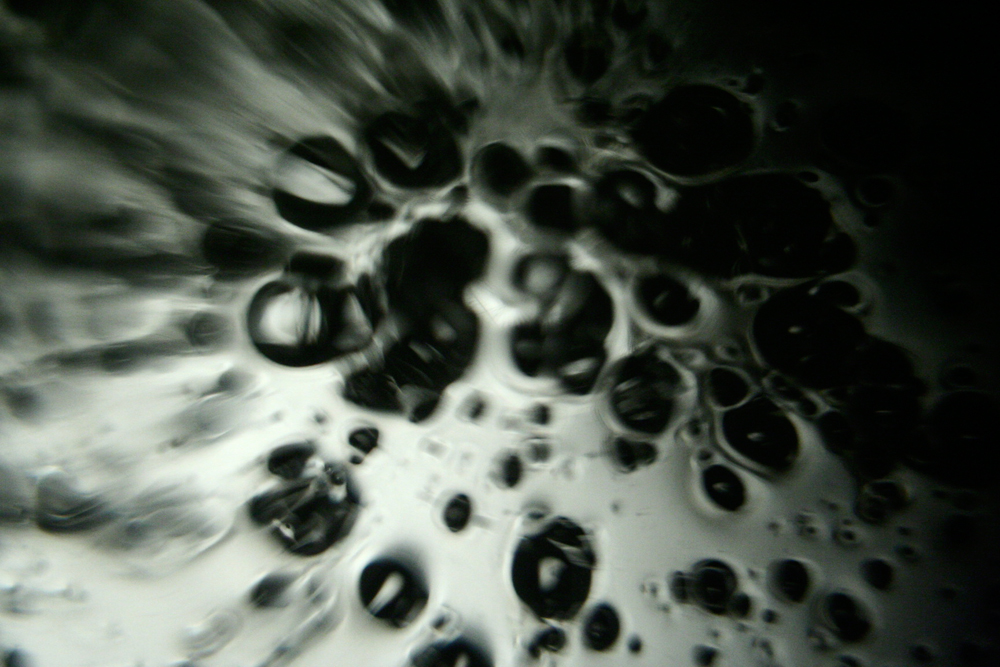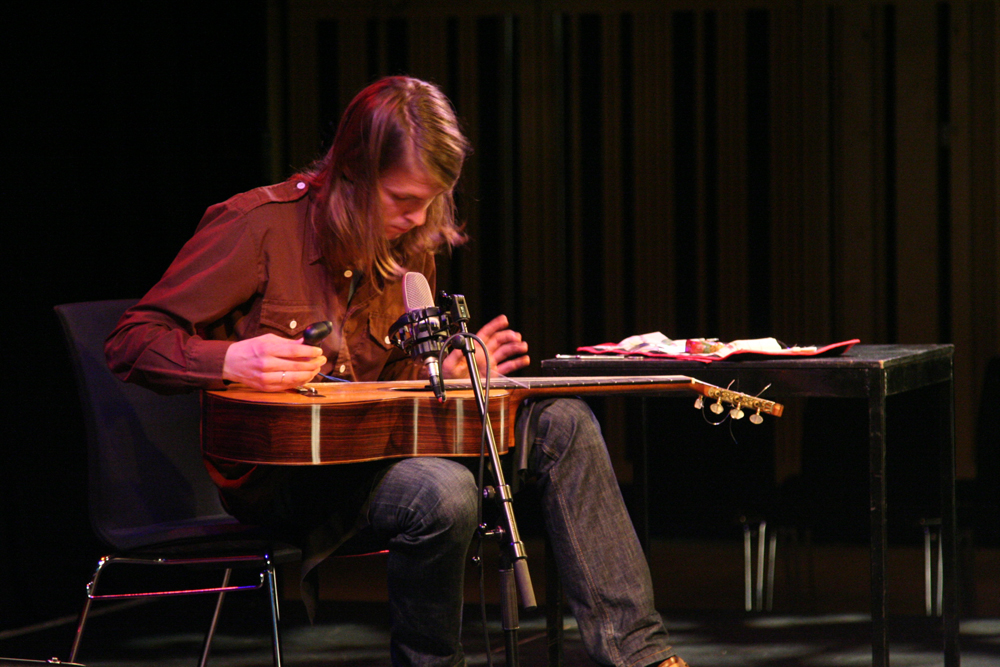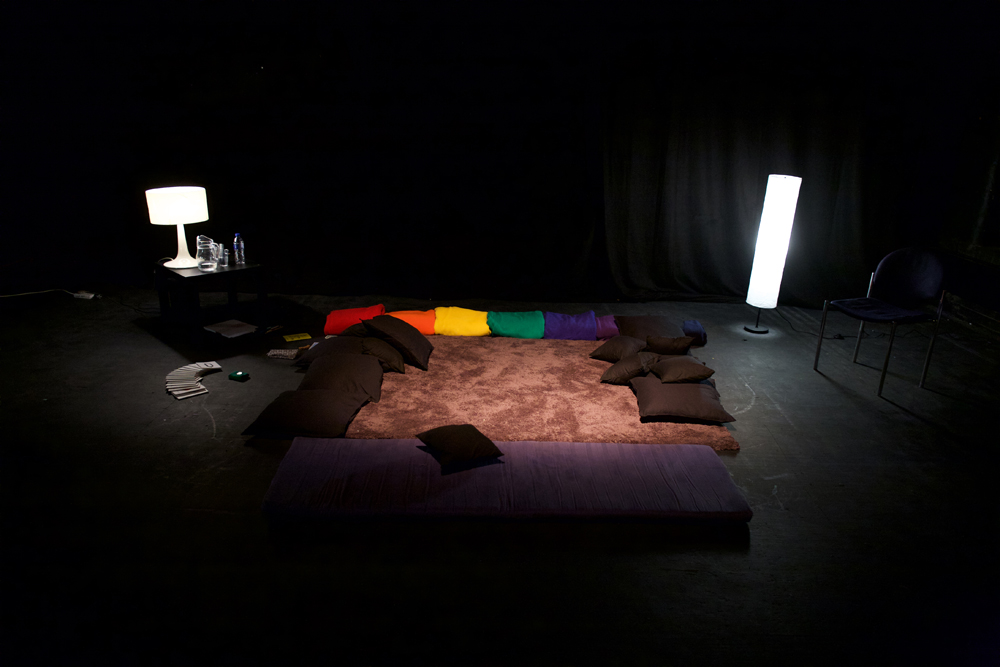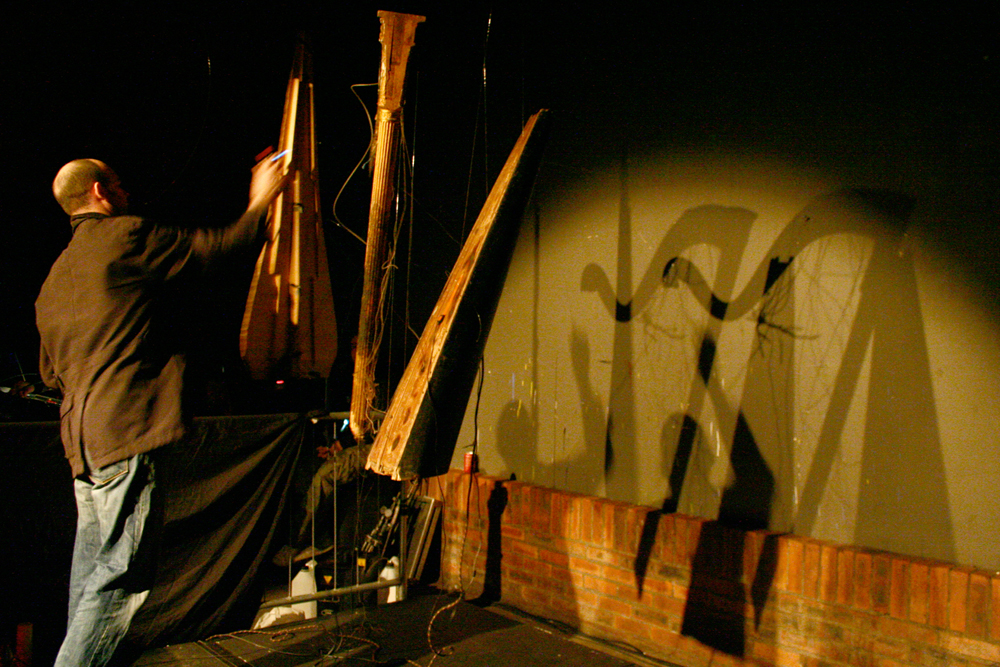
Tetsuya Umeda
Tetsuya Umeda
Umeda is a Japanese artist who is as fascinated in setting up interesting situations to observe, as he is in creating performances.
Arika have been creating events since 2001. The Archive is space to share the documentation of our work, over 600 events from the past 20 years. Browse the archive by event, artists and collections, explore using theme pairs, or use the index for a comprehensive overview.

Umeda is a Japanese artist who is as fascinated in setting up interesting situations to observe, as he is in creating performances.

A stroboscopic and intense sensory overload of flashing abstract forms, cut to ribbons by modified projectors.

Repetitive, mesmerizing rhythmic workouts, to pieces of stark and rigorous introspection, where notes picked and slid in isolation, scatter like mercury around the listener.

Ken presents his Nervous Magic Lantern, wherein film itself is forsaken for an investigation of hypnotic and trancelike crystaline forms. Eric La Casa works with recordings of everyday occurrences: the background hum of place.

Light Music is a dizzying celebration of the pivotal nature of sound in film; a direct and powerful transcription of film as sound.

Sax/Drums duo of raucous, pealing noise, and cries of beguiling lyricism, whispered sax phrases float in a timbral cloud of bowed metal and rumbling toms.

A guitar solo of frugal wringing, of notes in the dark, an attitude of making everything count.

Three intimate 45 minute sessions, readings of your political questions – using Tarot, Palmistry, Reiki, Astrology, and Philosophy, and the invented methods of Fake and Political Therapy.

Rhodri Davies plays two deconstructed harps. Lee Patterson examines the sonic properties of burning nuts.

How do we gesture to the invisible, the trans or the obscure? A performative conversation between boychild and Fernando, a sharing of gestures, and a bodily back and forth between mathematician and dance artist.

This event honoured those individuals who achieved the status of Icon during the period of 1986-1990.

Can a collective performance of NourbeSe’s poem of black life as it exceeds containment enact alternative forms of selfhood that emerge in and out of African diasporic experience?